These blokes deserve a lot more than the football gods have delivered.
THE WESTERN BULLDOGS are so used to producing great footballers who spend entire careers rummaging for scraps of team success, they even have a website devoted to them by a long-time fan who calls himself “the Bulldog Tragician”. It’s an appropriate bit of sanity-saving irony given the Bulldogs’ history of unrelenting disappointment. The Tragician writes poignantly of a scene in the dressing rooms after their much-loved champion Brad Johnson played his last game, a losing preliminary final (of course) to St Kilda. “The last time we saw Brad in our jumper, though, even his famous smile was dimmed ... he was attempting to console Nathan Eagleton, another retiree, as they sat in the rooms. Brad knew that, unlike Charlie, ‘premiership player’ would not be added to the list of accolades, no matter how close it seemed that day in the Sun Theatre.”
At the Yarraville Sun Theatre in 2009, Brad “Charlie” Johnson had sat next to the man who, in 1954, captained the first and last Footscray side to ever win a premiership cup, Charlie Sutton. The ’09 squad watched the gravelly, crackling video of that victory with the surviving members of the ’54 team. “Brad asks [Charlie] how he prepared, what it was like. You feel he’s asking as an awestruck fan, trying to drink it all in, not just as a player.” Johnson had more than twice the playing experience of his hero, but Sutton’s one achievement meant he inhabited a world Johnson could barely understand.
If ever there was a man you wished the success he could only marvel at, it was Brad Johnson. A friendly, unpretentious, ever-smiling champion and superlative leader who left it all on the field for the ’Dogs on 364 occasions (falling just short of playing alongside Liberatores senior and junior), Johnson, a six-time All-Australian, would’ve been welcomed into any side, and, surrounded by great personnel, who knows how he’d have been judged by posterity? Despite his smallish size, Johnson was a celebrated forward and midfielder, his career studded with acts of unrivalled courage. Many times, his solitary heroics earned his team unlikely victory.
The French actually have a term for it: succes d’estime. It describes those who are a success in informed people’s opinions, without outward rewards or conventional recognition; baubles and bouquets. The French, who probably post job vacancies for poets and philosophers “heavy thinking required” at their equivalent of Centrelink, no doubt have plenty of neglected talents. The Western Bulldogs have been a factory for them. With one solitary cup in the cabinet despite generations of magnificent heroes and rousing deeds, it was inevitable. Some were prodigies of will, some of skill: Chris Grant, Tony Liberatore, Bernie Quinlan, Barry Round, Scott West, Kelvin Templeton, Simon Beasley, Doug Hawkins, Johnson.
They were unrewarded but certainly not undeserving. In other teams, even the lesser-esteemed of them might have poked their heads into the spheres of greatness. But they’ll be remembered instead for toiling manfully surrounded by team-mates incapable of living up to their standards.
The list is long, and every one of them was extraordinary. Others, from other clubs, spring immediately to mind: Matthew Richardson. Matthew Knights. Robert Harvey. Tony Lockett. Kevin Murray. Gary Ablett Sr. Bobby Skilton. Nathan Buckley. Nicky Winmar. Wayne and Max Richardson. Robbie Flower. Peter McKenna. Paul Roos. Some of them, like Murray, Skilton and Harvey, were recognised for singular talent with Brownlows, All-Australians and various media awards, but such arbitrary accolades don’t compensate for the ultimate in team success. Poor old Skilts only experienced one finals game. Buckley, a footballer with the highest standards imaginable, just couldn’t hang on until 2010. The fat and juicy plum was always just beyond his reach. The thought of winning something must, just quietly, plunge him into a nympholeptic fever. Like Bucks, the extraordinarily enduring Kevin Murray won everything but a premiership. A Brownlow medallist, nine-times Fitzroy Best and Fairest, four-time All-Australian, Murray played a then-record 333 AFL games – 208 of those were losses. His weekly sacrifices to the gods in the cold Melbourne mud were met with cold silence. The man had the heart of a lion, was the heart of the Lions during their dark age, yet he barely knew what it was like to win a game of football, never mind a title.
Dermott Brereton, on the other hand, won few individual honours, but his smile will never be erased. He’ll always have “five-time premiership player” after his name. Comparisons between Ablett Senior and Junior, bound to be odious, almost always default to premierships. Junior won three. Senior, after four grand finals, not a single one. Therefore, apparently, the undeniably great Ablett fils is greater, they say.
It seems there are few vacancies in the average fan’s personal pantheon for champions whose teams won no titles. Skilton gets plenty of honourable mention, but he had to win three Brownlows. Apart from that single finals game, through years of tough battle and extensive injury, each September he’d reluctantly put his feet up, the only post-August action for him to look forward to being Brownlow night.
Who are today’s unrewarded heroes? Who are the men who have come to the rescue of their team time and again, yet found the hoisting of a premiership one Atlantean feat too many? Who are today’s fading, lost and endangered? The untitled, yet entitled? Who are the team champions, staunch loyalists and knights-errant who deserve better than the miserable handout posterity will give them?
ST KILDA
If ever a man did everything to get his troops over the line, that man is Nick Riewoldt. Now as St Kilda fades and drops further down the ladder with each passing season, it’s apparent that his – and his team’s – salad days, unsatisfying as they were, are over. They are left to lament the waste of their incredible run at the drafts at the turn of the century. For over a decade now, Riewoldt has run around with one of the most capacious tanks ever witnessed on a man of his size. His highlight reel includes some of the bravest play we’ve seen, especially those marks – a facet of his game that has earned him universal respect from opponents and opposing fans, and undying admiration from the Saints’ faithful.
Discussion recently has been around where Riewoldt rates as a St Kilda champion, and the brutal consensus seems to be that he is “second-tier”, behind men like Darrel Baldock, Kevin Neale and Carl Ditterich. Of course, they played in the Saints’ only grand final win, in 1966, otherwise they, too, might’ve been consigned to posterity’s purgatory. How much more highly might “Roo” have been appraised if his efforts, and those of the champions he played alongside, had led to the ultimate honour? They were one kick away ...
No one fits the “play for your life” category more than the hearty Lenny Hayes. The fearless and supremely effective defender has been the keystone of the St Kilda method for more than a decade, despite some frightful knocks and appalling injuries. Hayes is the Glenn Archer of the St Kilda club; the Sainter of the Century who completely lives up to the boast every club makes of its most admired players: he embodies everything our club stands for. Sadly, Lenny, now 34, will never get his hands on the prize. It’s not as though he didn’t do his best. Hayes was Norm Smith Medallist in the drawn 2010 grand final. He played his backside off that season, winning St Kilda’s Trevor Barker Award and its Player of the Finals. One kick ...
Upon the final siren of the 2010 grand final replay, there was another sound, less distinct, but heard clearly by the footy-wise. It was the sound of a “window” snapping shut. St Kilda might not see grand final action for a decade, perhaps even longer.
FREMANTLE
They might get another opportunity at the business end of season 2014, and we can only hope so for the sake of Matt Pavlich and Aaron Sandilands. Though their team could be a contender for a few seasons yet, it’s doubtful this venerable twosome will see much more action. If anything prolongs their arduous careers, it will be the injuries that have kept them both “rested” for long stretches in recent seasons. Many would debate whether there has been a better player over the last decade than Pavlich. His peculiar achievement has been to be recognised as a titanic footballer even when his team was forever under-par, during a time when the cultural imperialism of the East and its press, which sets the norms for footy discourse, meant Pavlich didn’t always receive the attention he deserved.
With Fremantle’s grand final last year, it was thought he’d finally get his fair reward after years of keeping his men buoyed with prodigious solo efforts against formidable opponents. He gave their fans a genuine hero to worship, and week after week they witnessed feats we in the east weren’t privileged to see. He’s been so good, and so versatile, he’s made six All-Australian sides, mostly as one of the premier half-forwards in the league, but also, extraordinarily, as full-back! He was also selected as full-forward in 2007. No one else has come close to making the side at both ends.
At times he’s been a powerful performer, capable, it seems, of beating elite opponents all over the ground. Pav, now 32, has been faltering lately because of injury, and there were concerns he might not front for the 2013 grand final.
The biggest and heaviest man ever to play the game, 211cm Sandilands has been a peerless ruckman at best, and a major reason Fremantle went into the 2013 grand final. His influence can be as massive as his body and throughout his career his gravitational pull has attracted extra opponents, freeing up his flying team-mates at stoppages. Dominating hitouts and clearances, he’s been a man capable of taking a match by the scruff of the neck and shaking it like a ragdoll.
During the 2013 finals series, this Frankenstein towered in more ways than one, terrorising Geelong, and the grand final loss was no fault of his. He rucked brilliantly.
Fremantle’s premiership portal is still slightly ajar. If the Dockers make it, we can only hope Pavlich and Sandilands are there to make a difference.
ESSENDON
Essendon’s “window” seemed to open wide in 2012, when the Bombers lost only one game in the first half of the season. At last champions like then-27-year-old Jobe Watson would be recompensed for years of diligent toil, or at least experience football deep into the finals. Then came that disastrous second half of the year, and the entire performance-enhancing drugs saga. (ASADA has conducted an investigation that seemed unnecessarily protracted, and it seems players will have now have those torturous show-cause notices hanging over their heads for years – not to mention the resultant court cases.)
Watson – a deserving Brownlow winner in 2012 – is 29 now, and redemption doesn’t seem a possibility. He’s been a true inspiration in the second half of his career: brave, skilful, a visionary. On those occasions in the last decade when Essendon has needed perspicacious leadership or visceral exertion, Watson has, more often than anyone, been the one to step up. Twice he’s been an All-Australian centreman in an era of some of the best midfielders the game has seen. He doesn’t deserve his lot.
The unluckiest of them all has to be Brendon Goddard, one of those prime draft picks who made an enormous difference at St Kilda with his ball-getting, distribution skills and towering presence on and off the ground. Sadly for this invaluable utility, he hit the Dons as it hit the fan during their infamous 2013 season. Even in those terrible times, he immediately made a colossal impact with his leadership and mentoring, as well as his all-round ability. Goddard, 29, has become an instant Dons hero, but it now looks as though his chances are all but gone to retire with a championship pendant.
They have a good draw and could push for the finals this year, and they might overcome the ASADA trial. They might, at the other extreme, cease trading for a couple of seasons. Either way, time is running short, and Goddard might be left to contemplate how it was that his explosive career should end with a whimper. It’s difficult to see the Dons rebuilding to premiership status in the time he has left.
WESTERN BULLDOGS
The 2008 Brownlow medallist Adam Cooney, now 29, looks as though he’ll have to be satisfied with his sole individual honour. In an age of outstanding midfielders, Cooney has been stunningly good at times, but it seems he’ll follow the footsteps of that legion of unfulfilled Bulldogs heroes. In the latter part of his career, which has been blighted by debilitating knee injuries, the explosive Cooney has threatened to rival Ablett as a ball-getting, goalkicking midfielder. Time will heal his wounds, but it will never bring a premiership.
Bob Murphy has spent most of his career as a contemporary of other unrewarded Bulldog stars like Brad Johnson, Tony Liberatore (he has played alongside father and son), Chris Grant and Scott West. Murphy, a beautiful and efficient kick and rebounding backman with a stout heart, is one of the AFL’s true leaders and among its more intelligent footballers. Murphy epitomised that “quiet dignity” and fidelity he himself has vocally admired about the Bulldogs during his career. But the ’Dogs are perpetually “rebuilding” and though current coach McCartney is doing a sterling job, their prospects for finals football are not great at the moment. Murphy is 32 now and for the Dogs, their opening, such as it was, well-and-truly closed around 2011.
CARLTON
Chris Judd has already tasted the honey and cream of a premiership and enjoyed plenty of personal success. It looks as though talented team-mates like Bryce Gibbs and Marc Murphy might only savour the bitter gall of frustrated desire. Gibbs has three years on Murphy, so we’ll spare him inclusion in this list.
Murphy is now leader of the team, and at 27, might have three great years and a few good ones after that. A brilliant footballer with a tough approach, he showed his mettle in the second half of 2013, after beginning it with a knee injury, then breaking his jaw. He’s signed a four-year deal that will probably see him out. This year the high-possession winner also currently tops Carlton’s tackle-count. Murphy is talented and a willing learner – the sort of bloke whose leadership should someday be rewarded with the only tribute that seems to matter. It won’t be, while he’s at Carlton.
Andrew Carrazzo has been a fantastic club man – a determined and selfless midfielder who might have shone more brightly in a successful team. As a rebounding defender, he’s nullified some brilliant attacking footballers like Aaron Davey and Jeff Farmer. Carrazzo is the sort of player close followers of a team truly appreciate, even if other fans don’t notice his efforts. A premiership might have changed that, of course, but Carrazzo is 30 now, and coach Malthouse has a mountain of rebuilding to do.
MELBOURNE
Young Jacks Watts (23), Viney (20) and Trengove (23) might one day seize the prize, especially if Paul Roos builds the team he wants. Those who have trudged undaunted through dark forests of disenchantment season after season won’t be so lucky.
Cool-headed, consistent Nathan Jones has led the Demons through some bleak seasons, and managed plenty of best-and-fairest and best team-man awards. The current captain has been honoured in his own land, largely unnoticed by fans of other clubs and the media. On many occasions, he’s done it alone. Always the fighter, he’s still slashing away despite heavy tagging – but he’s added tricks along the way. He demands the ball, and has that rare quality of being more compelling to watch the more his team is being flogged. Think Tony Shaw – without the 1990 trophy. He never gives up, and his intensity never drops. At 27, he might still be a chance, but it’s a long shot.
One Melbourne player we feel sorry for is Daniel Cross. This intrepid battler was delisted by the Bulldogs in 2013, after winning their B&F in 2008 and coming runner-up in 2005, 2009, 2010 and 2011, and third in 2006. The bloke has played his guts out and extracted the best possible return during his time at the Bulldogs. They did play in 11 finals during his time there, and his gallant efforts had much to do with it. The Melbourne win over Essendon this season had the feeling of a minor turning point, and Cross proved that his presence adds real character and fibre to the Melbourne midfield. Roos is working his magic, and it might be in time for Jones, but Crossy is now 31, and will be lucky to extract another two seasons from his battle-worn body.
NORTH MELBOURNE
Brent Harvey has, believe it or not, figured in a North Melbourne premiership, although a player of his greatness deserved more. But pity poor Drew Petrie. Petrie has been a great forward who would’ve been esteemed very highly if he’d been in the same position as Tom Harley or Travis Cloke. As it’s been, Petrie has been forced to fill utility roles, as a key forward, in defence, and in the ruck, in a Kangaroos team that has spent much of this century beleaguered with survival issues. Now, at 31, he sees a quickly shrinking pinprick of light at the end of what has been a long tunnel. His form seems to be waning. They might win a cup in the next decade, but Petrie won’t be there to see it, sadly.
Like his former team-mate Brendon Goddard, Nick Dal Santo has been a boon to his new team, and slotted straight into its top tier. He has forever been the smooth left-footer, solid defender and pivotal midfielder. He’s far from injury-prone, but the Kangas are a long way from premiership honours – too far for Dal Santo, now 30.
RICHMOND
They still have enough talent to turn around in a couple of seasons. Will that be soon enough for former captain Chris Newman? If Newman was a tradie, you’d be keeping his number. What a precise, organised, honest and hard-working player he’s been. This true embodiment of a club loyalist at last played a final in 2013 after 232 games of hectic defending, but it’s hard to say if he’ll get another one, at 32. At Geelong, he might have been Tom Harley; at Collingwood, Nick Maxwell. Both of these bangers-and-mash defenders will be remembered as premiership captains.
ADELAIDE
The Adelaide Crows might suddenly rise. Though sometimes written off, they have a formidable forward line and their erratic chart has caused much aporetic debate amongst the pundits of the East. For that reason, Scott Thompson, Eddie Betts, Jason Porplyzia and Nathan Van Berlo don’t appear on this list.
They, like everyone else here, deserve just a little of fate’s fortune ...
Related Articles
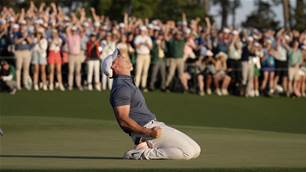
Feature Story: Moving the Needle
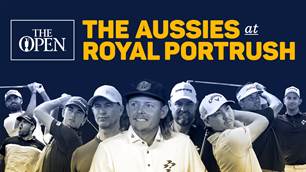
The Aussies at The Open
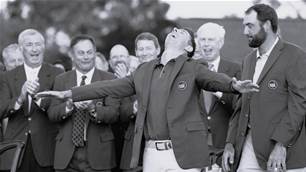
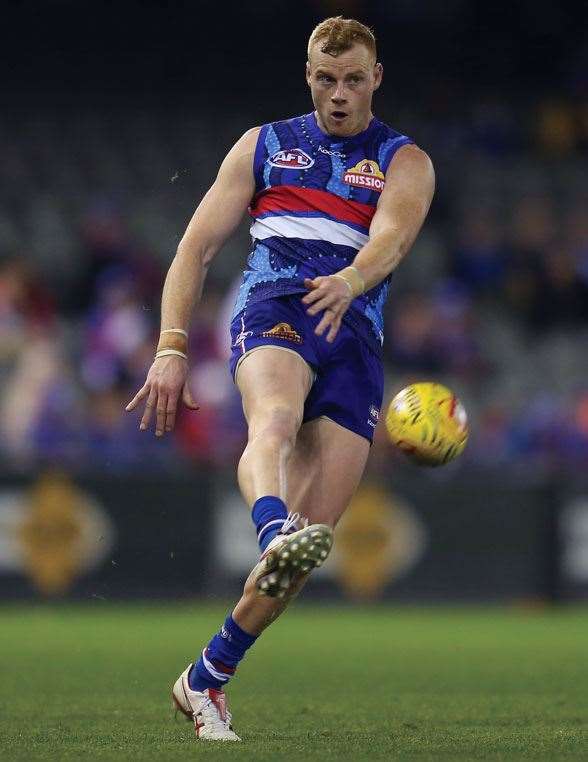
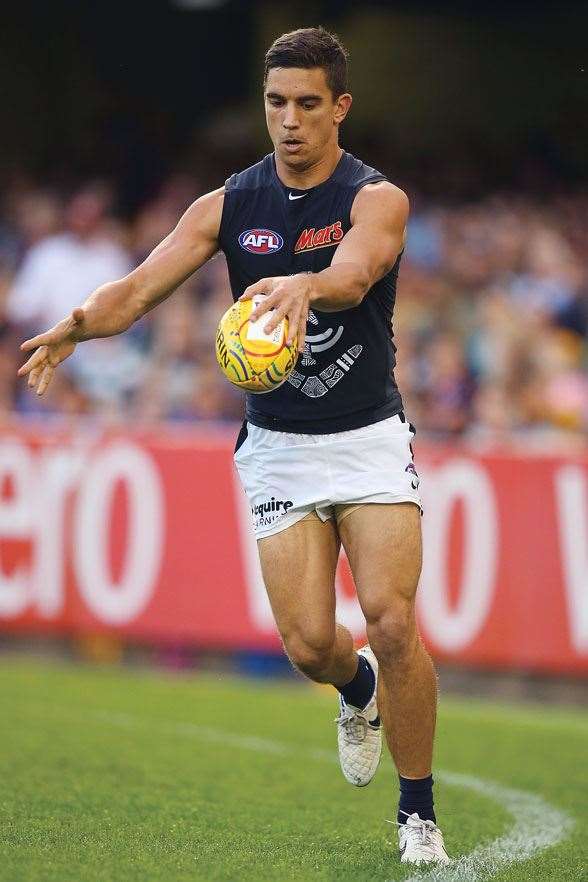
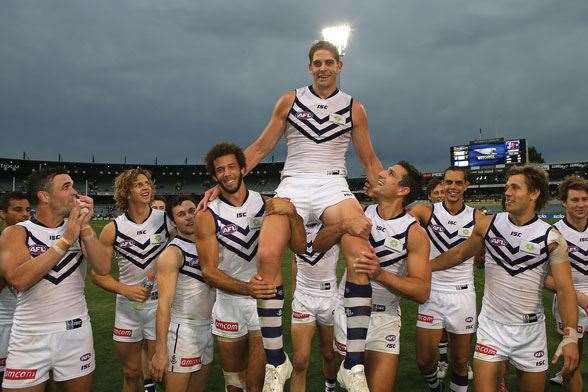
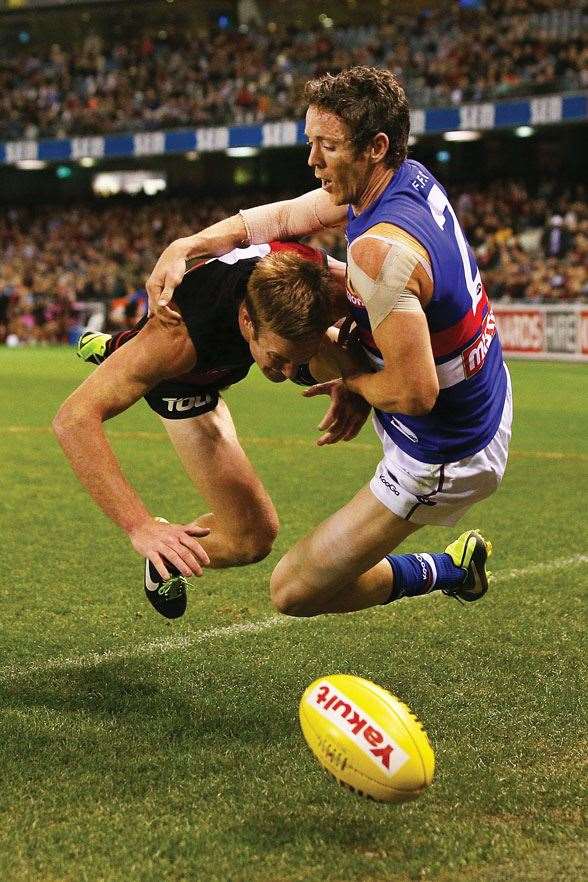
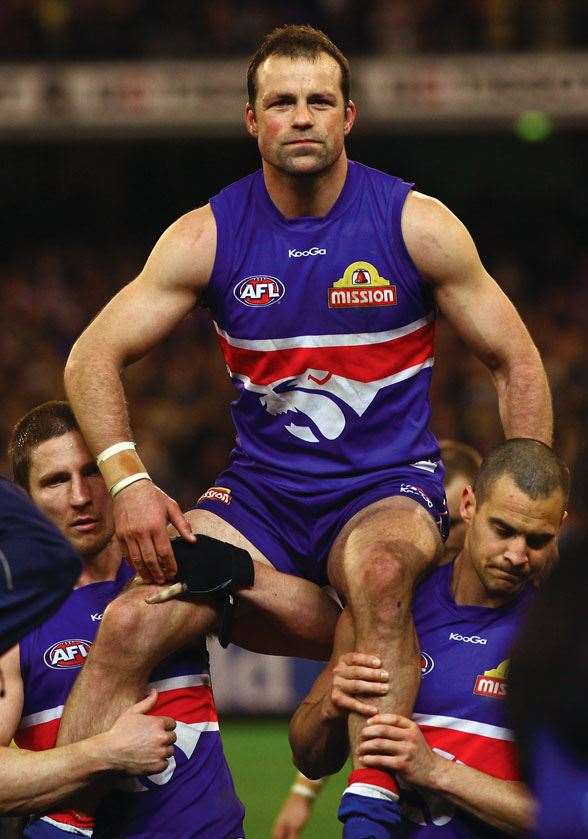
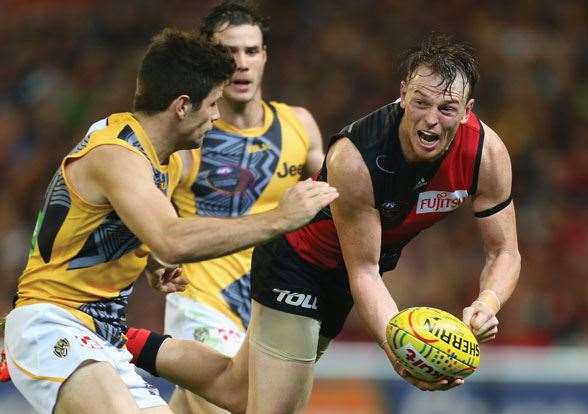
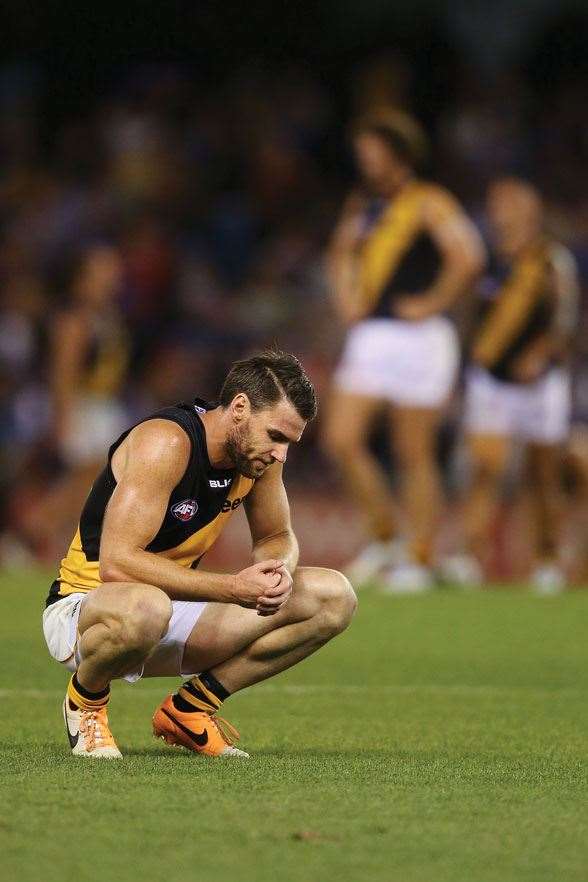
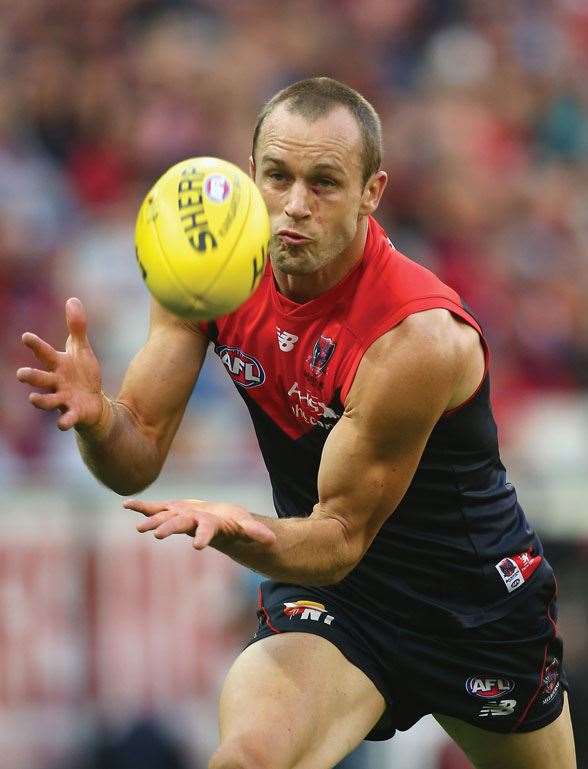
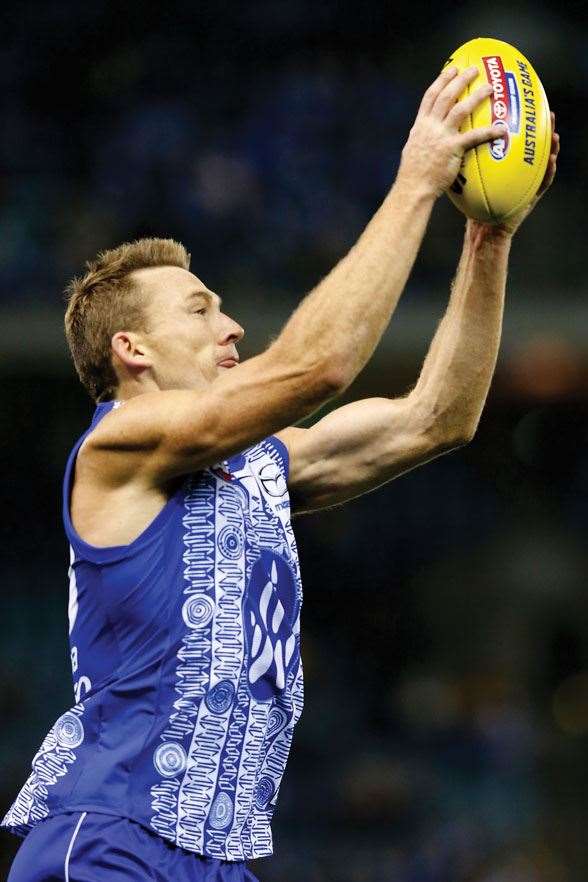
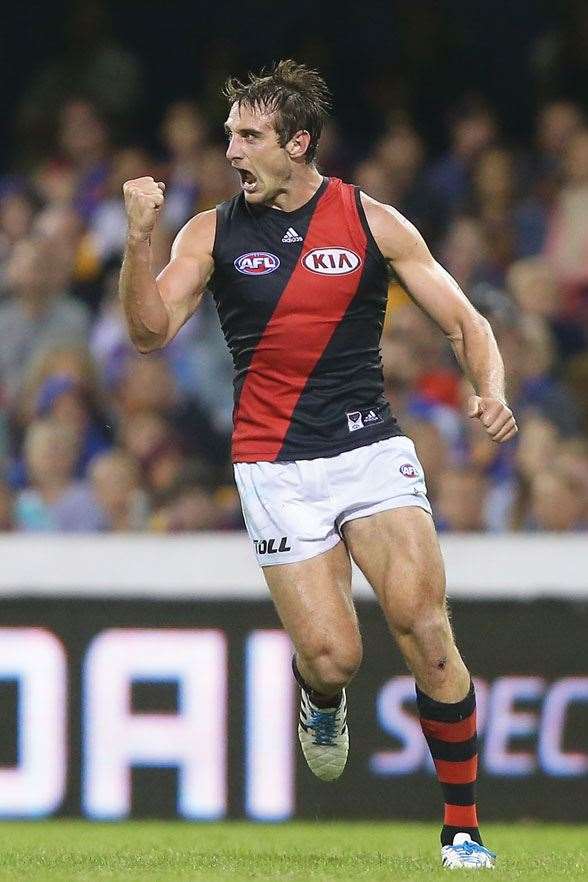
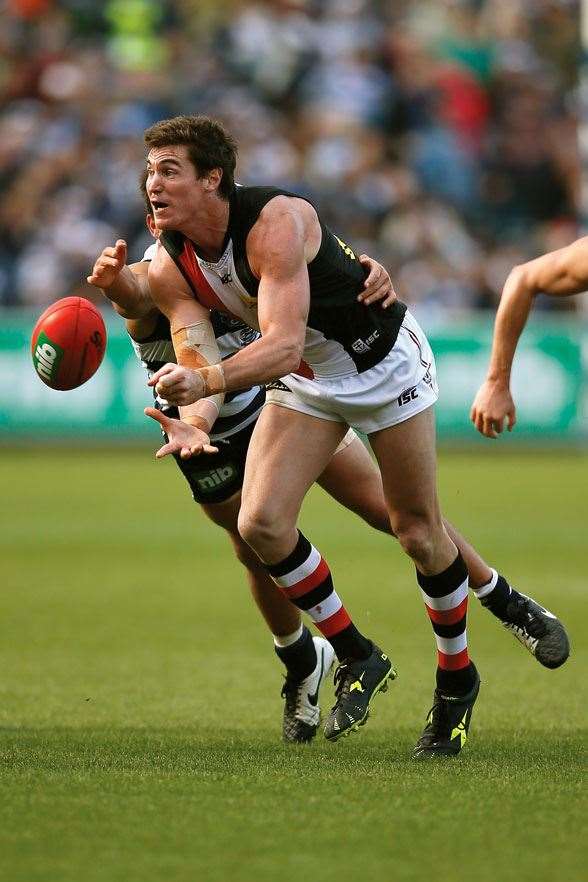
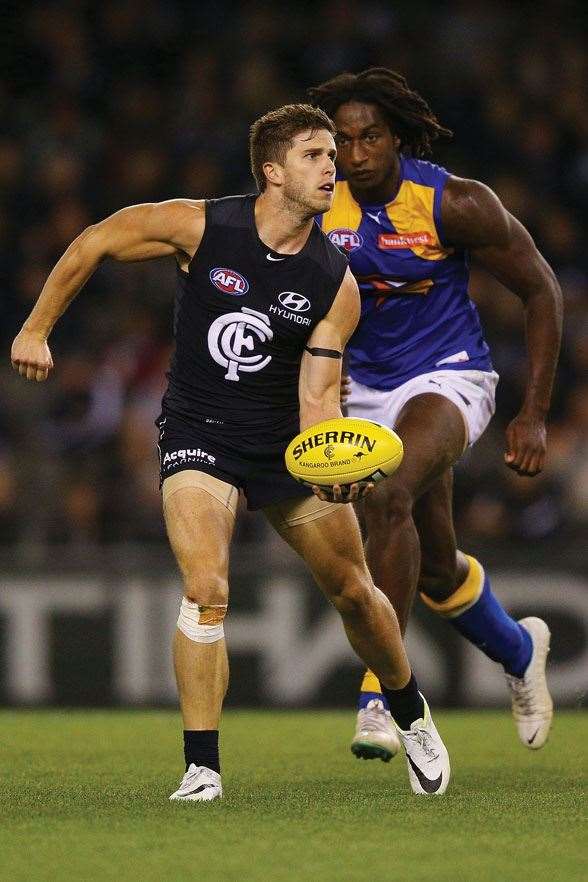
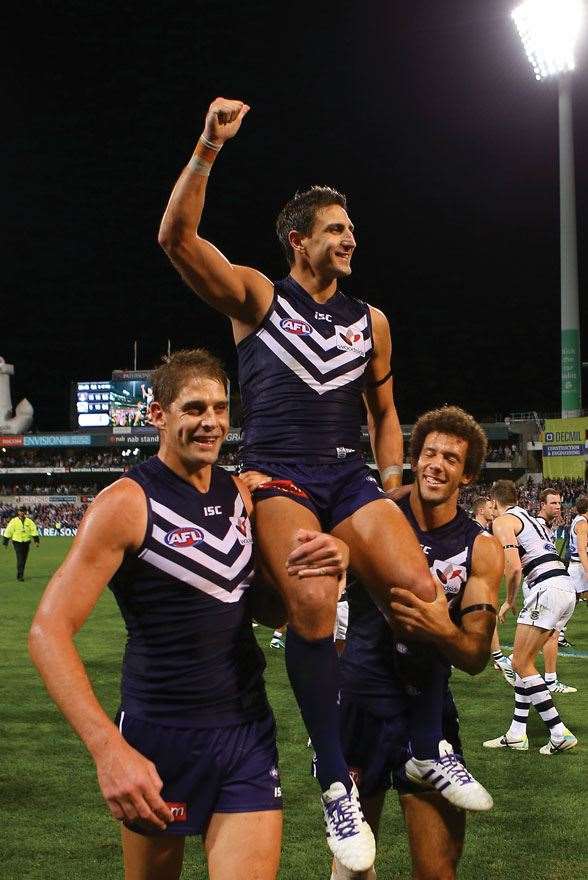
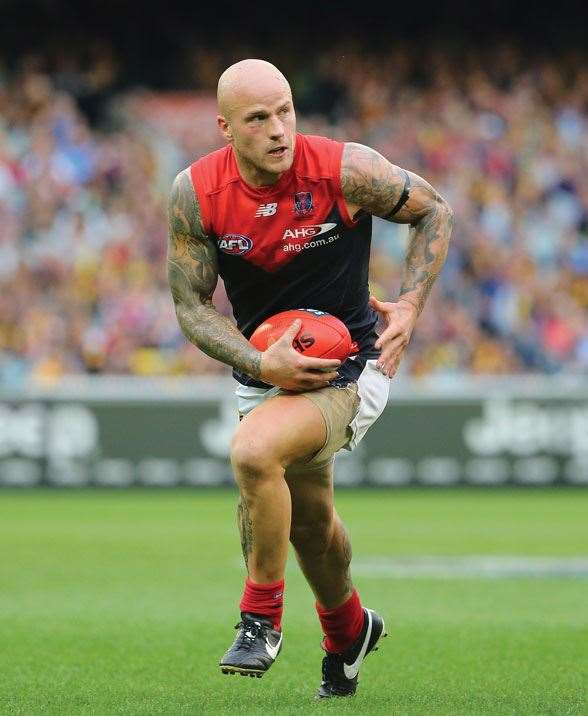
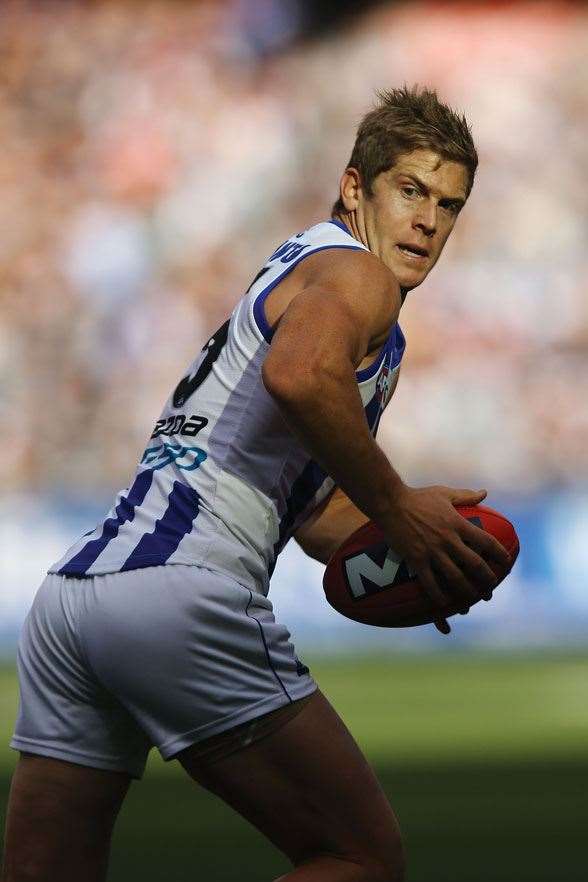
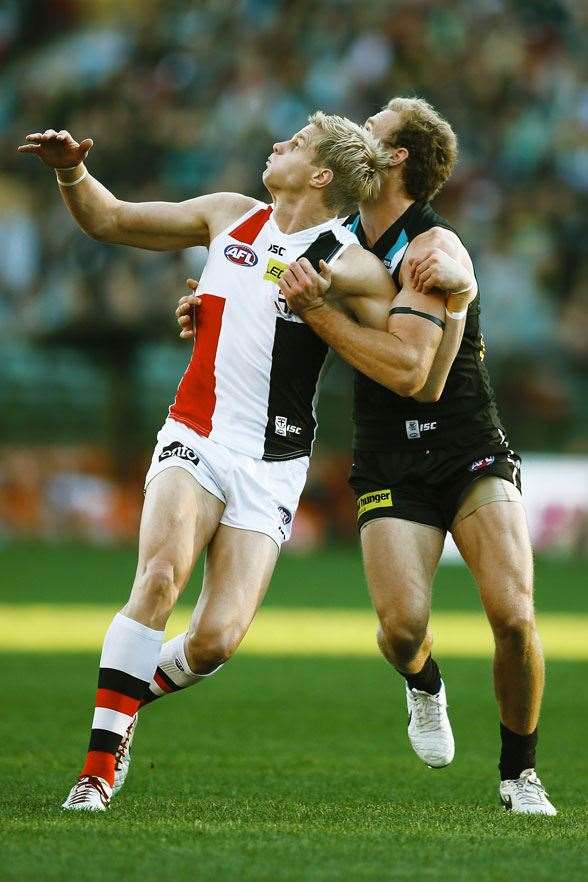

.png&h=115&w=225&c=1&s=1)










